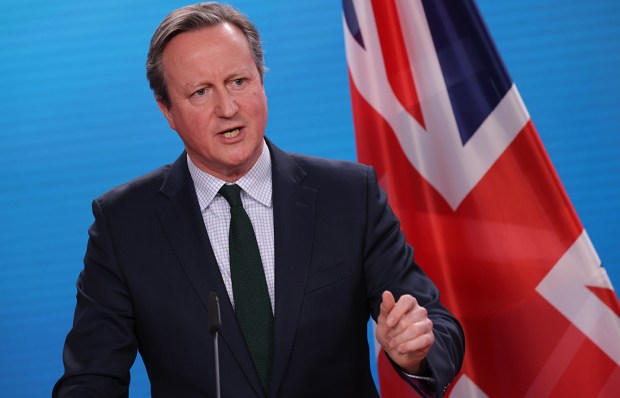Taking a short break from persecuting Roman Catholic faith schools for ideological reasons, Ofsted has stuck the boot into the Abbey School in Kent. This school, in Faversham, has been given the lowest possible ranking of ‘inadequate’. The report bemoans the fact that pupils are expected to do as they are told, be polite and behave themselves, and describes the atmosphere within the school as ‘oppressive’. By a winning coincidence, Ofsted’s report was published in the very week that the Abbey School reported by far its best ever A-level results. What, Ofsted sees as ‘oppression’, then, is more commonly known as ‘running a school properly’.
In 2017, before the fascists moved in to the Abbey School, not a single pupil got an A* or even an A at A-level. This year two-thirds received grades from A* down to C, and the number of A* and A grades doubled from the last (pre-Covid) exams. Of course a school’s job is not simply to coach its charges towards being possibly employable in the distant future by ensuring they get decent grades – although I would suggest it is by far the most important task and very much more important than the ‘pastoral care’ which now seems to occupy the attentions of about two-thirds of the teaching staff in most state schools. Pastoral care seems to be a euphemism for indulging the kids in their various whims and increasingly means that schools are doing the sort of stuff which should be done by parents.
At the Abbey School, however, they take a different approach. Pupils are enjoined to speak ‘in full sentences, project their voices, sit up straight and listen’. They are also expected to ‘remember basic manners’ and to ‘greet each other’. The hope, then, is that the kidz develop into normal, sentient human beings rather than remain slouching, mumbling, monosyllabic troglodytes who you wouldn’t trust to supersize your burger. I think this is a noble aspiration: Ofsted thinks it merely oppressive and would like it to stop.
In fairness, so do a handful of the parents of Abbey School children. One of the problems for teachers these days is that parents do not automatically, as once was the case, support them in enforcing discipline: instead they take the side of their precious offspring and jabber about their rights. When I was in trouble at school – a fairly frequent occurrence, you will be surprised to learn – I tried as far as was possible to keep the news from my parents, even to the extent of once rather improbably explaining to my mother that the two long parallel bruises across my buttocks were not remotely the consequence of being caned but because I had fallen on to a wall, twice. I knew that having been caned for some misdemeanour would occasion an even greater punishment from my parents and that any complaint from me would be ignored. (My crime on that occasion had been to write down on a piece of paper every colloquial synonym for ‘penis’ I knew – there were about 40 or 50 – and inadvertently hand it in with my maths homework. Mr Cox – yes, he was on the list, of course – was less amused by such terms as ‘veined Vernon’ than I might have hoped. I had been given two strokes of the cane rather than one for the impudence of saying, when the deputy headmaster asked me to bend over: ‘But sir, we’ve only just met.’ Happy days.)
But this is a digression away from the main point which is, namely, that Ofsted is not remotely fit for purpose. Indeed, we are reaching the point where one is tempted to be impressed by any school which receives an ‘inadequate’ rating, because anything which annoys the idiotic inspectors must be a good thing. This quango has been spending its time recently persecuting, with great spite, faith schools under various dubious pretexts. Many faith schools have a different interpretation of the dreaded Personal, Social, Health and Economic (PSHE) education to the Stonewall-inspired rot implanted in young people’s minds in most state schools. I think this angers Ofsted.
The quango has driven our most famous Roman Catholic school, Ample forth, towards the brink of closure, its findings tendentious and grossly overstated. Upon hearing that another Catholic school, the John Fisher School in Purley, had withdrawn an invitation to a gay author who was due to deliver a speech to the pupils, Ofsted, enraged, decided upon a snap inspection and its idiots swarmed in like a cross between the Keystone Cops and the Gestapo.
As I have mentioned many, many times before, all of this stuff is happening under a government which is, nominally at least, Conservative – much as did the maiming of children at the Tavistock gender realignment clinic and much as did the RAF’s interesting decision to pause recruitment because it was unable to meet its stupid diversity targets. Hearing this last story, the former health secretary Sajid Javid pronounced himself astonished. But of course the same decisions are happening every week in the NHS, which has a vast profusion of very well remunerated diversity tsars. There are undoubtedly one or two Conservatives who approve of this ludicrousness, among them Penny Mordaunt and the inestimable, mithering, half-witted Caroline Nokes. To my mind this means they are not really Conservatives at all. But surely the majority of the parliamentary party know that it is wholly fatuous – in which case why do they not do something about it? Because they are scared? Because people on Twitter might attack them?
To his credit, Michael Gove – now sadly departing ‘frontline politics’ – did attempt to grapple with what he called ‘the Blob’, but nobody else seems to have the appetite to do so. Seven years in office and this post-rational wokery remains unchallenged even within government departments. More than anything else, I think, that is the party’s real failure. It is not Conservative.
Got something to add? Join the discussion and comment below.
Get 10 issues for just $10
Subscribe to The Spectator Australia today for the next 10 magazine issues, plus full online access, for just $10.
You might disagree with half of it, but you’ll enjoy reading all of it. Try your first month for free, then just $2 a week for the remainder of your first year.















Comments
Don't miss out
Join the conversation with other Spectator Australia readers. Subscribe to leave a comment.
SUBSCRIBEAlready a subscriber? Log in